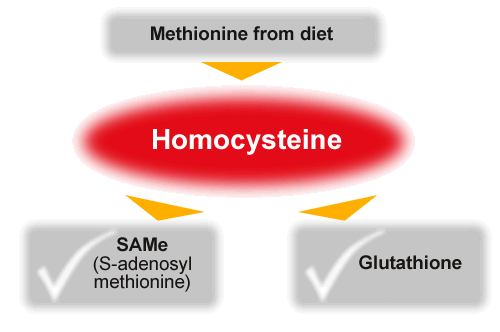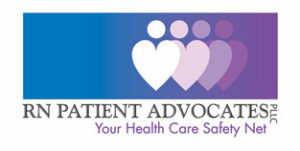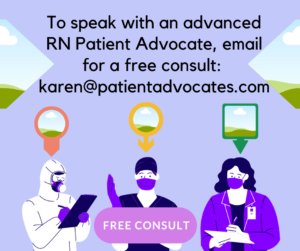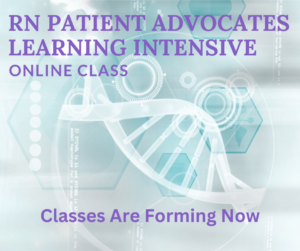Homocysteine – what is it? Why do we need to know? Ask your heart.
 Since 1990, the National Library of Medicine has posted thousands of scientific studies showing that homocysteine is a significant risk factor for disease.
Since 1990, the National Library of Medicine has posted thousands of scientific studies showing that homocysteine is a significant risk factor for disease.
What disease? Higher levels of homocysteine raise the risk of premature cardiovascular disease affecting the heart, brain, and peripheral blood vessels. Elevated homocysteine may speed the progression of atherosclerosis (hardening of the arteries) in the arteries in your heart and the rest of your body.
Osteoporosis: Women with high homocysteine levels were found to have significantly lower bone mineral density in the hip than control subjects.
Alzheimer’s Disease: Rising levels of homocysteine may predict impending cognitive decline and Alzheimer’s disease.
Depression and elevated homocysteine appear to be related as well.
Elevated homocysteine levels have now been correlated with a wide array of illnesses, including the ones listed here as well as stroke, schizophrenia, macular degeneration, cervical cancer, and birth defects.
 So what is it? Homocysteine is an amino acid (protein) that your body makes from another amino acid called methionine – found in protein-dense foods that you eat on a regular basis, such as sunflower seeds, eggs, and fish.
So what is it? Homocysteine is an amino acid (protein) that your body makes from another amino acid called methionine – found in protein-dense foods that you eat on a regular basis, such as sunflower seeds, eggs, and fish.
Normally, homocysteine gets converted into two really helpful compounds: SAMe (S-adenosyl methionine- you may have read about the use of SAMe in treating depression) and glutathione, your body’s master antioxidant.
Sounds good, right? However, in order to convert the homocysteine to these helpful compounds, you need sufficient folate, B12, Vitamins B 2 and 6, zinc, trimethyglycine and magnesium.
What can we do? Step one: ask your doctor about checking your homocysteine level. Step two: if your homocysteine level is high, ask to have the levels of folate, B12, B2, B6, zinc, magnesium (as RBC magnesium) and trimethylglycine checked. If they are low, it is both simple and inexpensive to replenish your body’s stores of these nutrients.
 Since 1990, the National Library of Medicine has posted thousands of scientific studies showing that homocysteine is a significant risk factor for disease.
Since 1990, the National Library of Medicine has posted thousands of scientific studies showing that homocysteine is a significant risk factor for disease.
What disease? Higher levels of homocysteine raise the risk of premature cardiovascular disease affecting the heart, brain, and peripheral blood vessels. Elevated homocysteine may speed the progression of atherosclerosis (hardening of the arteries) in the arteries in your heart and the rest of your body.
Osteoporosis: Women with high homocysteine levels were found to have significantly lower bone mineral density in the hip than control subjects.
Alzheimer’s Disease: Rising levels of homocysteine may predict impending cognitive decline and Alzheimer’s disease.
Depression and elevated homocysteine appear to be related as well.
Elevated homocysteine levels have now been correlated with a wide array of illnesses, including the ones listed here as well as stroke, schizophrenia, macular degeneration, cervical cancer, and birth defects.
 So what is it? Homocysteine is an amino acid (protein) that your body makes from another amino acid called methionine – found in protein-dense foods that you eat on a regular basis, such as sunflower seeds, eggs, and fish.
So what is it? Homocysteine is an amino acid (protein) that your body makes from another amino acid called methionine – found in protein-dense foods that you eat on a regular basis, such as sunflower seeds, eggs, and fish.
Normally, homocysteine gets converted into two really helpful compounds: SAMe (S-adenosyl methionine- you may have read about the use of SAMe in treating depression) and glutathione, your body’s master antioxidant.
Sounds good, right? However, in order to convert the homocysteine to these helpful compounds, you need sufficient folate, B12, Vitamins B 2 and 6, zinc, trimethyglycine and magnesium.
What can we do? Step one: ask your doctor about checking your homocysteine level. Step two: if your homocysteine level is high, ask to have the levels of folate, B12, B2, B6, zinc, magnesium (as RBC magnesium) and trimethylglycine checked. If they are low, it is both simple and inexpensive to replenish your body’s stores of these nutrients.





Recent Comments